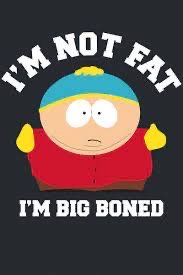@chic and
@PeppermintPatty you have raised a very interesting question, to me anyway. It would never have occurred to me that being obese is as bad or worse for your health than smoking. However I did do a bit of follow up Google research and it does appear to be very much true.
Which does make me think about how we treat the two problems. Lots of restrictions, taxes, and social pressures on smokers. Obesity is recognized as a problem, but there are many fewer government controls and taxes than on smoking. Should french fries cost $7 a pack?
I am a supporter of most anti-smoking campaigns, but not judgmental of those who still smoke. I know its a very easy habit to get into and a very hard one to end. Its a personal choice. The one thing I don't like is the extremely high tax on cigarettes. In the US more poor people smoke than rich, the cigarette tax is a tax on the poor. And I suspect doesn't stop much smoking.
Even though I have too much experience with obesity I am less certain as to what to do about it. It's probably a more complex problem than smoking.
However I believe there should be some recognition of the equality of the problems. For example I am not sure it makes sense for smokers to pay higher health insurance premiums, unless we do the same for obese people...
Here is one of the articles I read:
Obesity in adulthood and its consequences for life expectancy
https://pubmed.ncbi.nlm.nih.gov/12513041/
Results: Large decreases in life expectancy were associated with overweight and obesity. Forty-year-old female nonsmokers lost 3.3 years and 40-year-old male nonsmokers lost 3.1 years of life expectancy because of overweight. Forty-year-old female nonsmokers lost 7.1 years and 40-year-old male nonsmokers lost 5.8 years because of obesity. Obese female smokers lost 7.2 years and obese male smokers lost 6.7 years of life expectancy compared with normal-weight smokers. Obese female smokers lost 13.3 years and obese male smokers lost 13.7 years compared with normal-weight nonsmokers. Body mass index at ages 30 to 49 years predicted mortality after ages 50 to 69 years, even after adjustment for body mass index at age 50 to 69 years.
Conclusions: Obesity and overweight in adulthood are associated with large decreases in life expectancy and increases in early mortality. These decreases are similar to those seen with smoking. Obesity in adulthood is a powerful predictor of death at older ages. Because of the increasing prevalence of obesity, more efficient prevention and treatment should become high priorities in public health.



